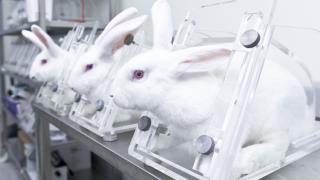
We contributed to Committee’s report – and now await government response.
The UK Home Office has now received recommendations on improving public transparency on the use of animals in science, after we contributed to a report written by the Animals in Science Committee (ASC), an advisory body to the UK government.
The ASC has reviewed two key, publicly-available documents linked to licenses issued by the Home Office for the use of animals in experiments in the UK – Non-Technical Summaries (NTS) and Retrospective Assessments (RA).
An NTS must be part of every licence application to use animals in science, whilst an RA must be completed at the end of projects involving specially protected species and/or those involving experiments that inflict severe harm to the animals involved. These summaries and assessments are meant to provide the public with clear, accessible information about the procedures involved and the potential harms to animals – however, we have long been critical of the way these documents are completed.
Common problems identified include the use of overly technical language, which can be difficult for the public to understand, and a lack of information on what the experiment involves and the pain the animals will experience.
The ASC reviewed 30 of these documents, as well as conducting a stakeholder survey, to which we contributed. It is apparent that many of the ASC’s recommendations to the government are supported by our influential research which has been published in ALTEX and on the PubMed Library.
The recommendations include: creating a list of key technical terms to make complex issues more understandable to the public; helping applicants include enough detail on the tests to be performed and potential suffering they will involve; and developing a searchable database in which to publish the documents to improve public accessibility.
Our Director of Science and Regulatory Affairs, Dr Emma Grange, said: “We are pleased to see that the ASC has provided extensive recommendations in alignment with our research and our input into the review. We hope the Home Office will carefully consider these recommendations and make the necessary changes to ensure that these key documents more accurately and transparently inform the public of the impacts and harms of experiments on animals in UK laboratories.”
